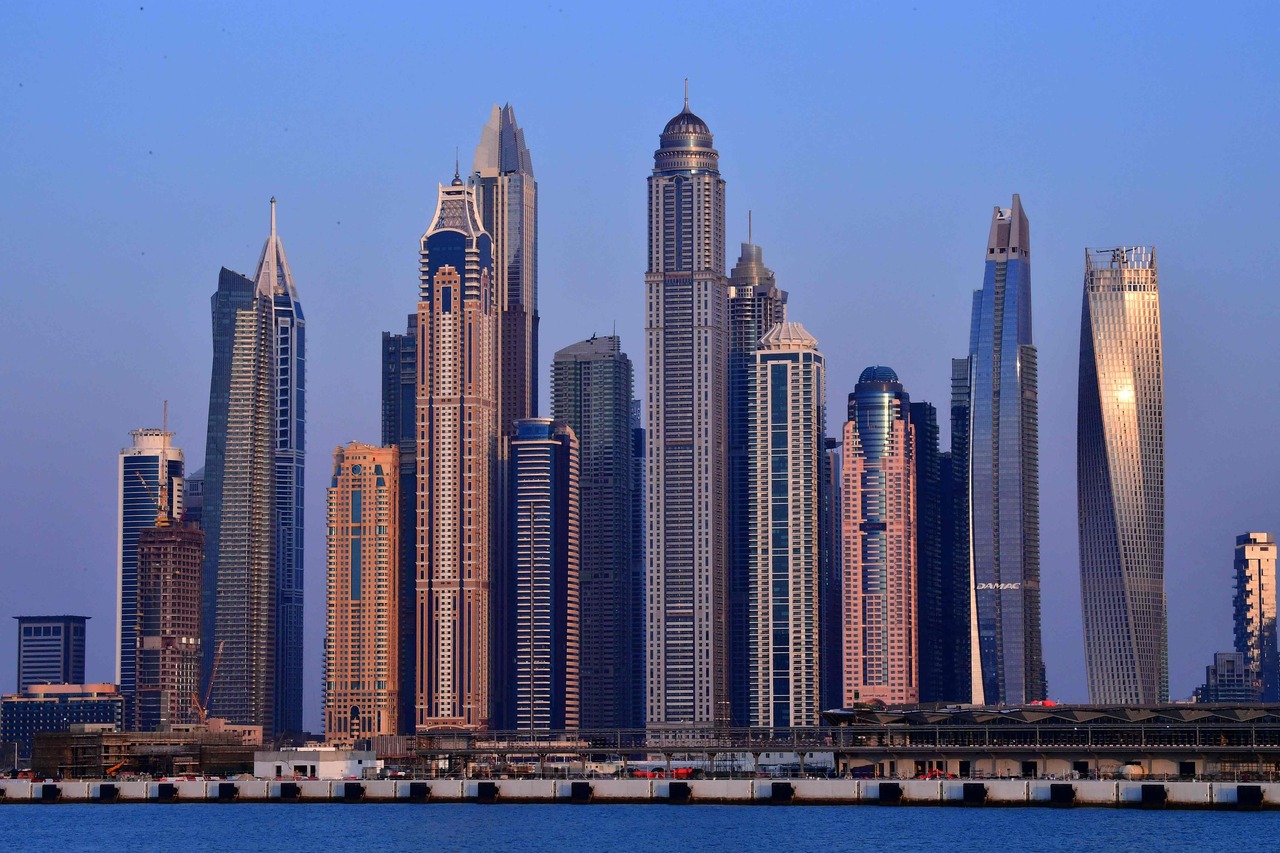Bankers quit jobs for shot at riches in UAE's 'Wall Street of crypto'
Sign up now: Get ST's newsletters delivered to your inbox

The UAE's crypto-friendly policies have lured the largest firms.
PHOTO: AFP
MILWAUKEE (BLOOMBERG) - In the shadow of Dubai's sail-shaped Burj Al Arab hotel, crypto executives rubbed shoulders with Emirati royals, Wall Street bankers and Instagram influencers.
The festivities in late March were organised by Binance Holdings in its de facto home of the United Arab Emirates (UAE), which is fast becoming a global hub for digital currencies.
Binance co-founder and chief executive officer Zhao Changpeng skipped the event as he recovered from Covid-19, but he was top of mind for partygoers who said they aspired to replicate his rapid ascent from software developer to one of the world's wealthiest people.
Following his lead, many are flocking to the UAE, which he has called the "Wall Street of crypto". The euphoria even has local bankers, lawyers and big tech executives pondering career pivots of their own to cash in.
"We see a lot of interest from employees in traditional financial institutions who want to work for us," Mr Richard Teng, the head of Middle East and North Africa at Binance, which is the world's largest crypto exchange by trading volume, said in an interview at Bloomberg's Dubai office. "We are actually recruiting a number of them."
Career pivots
In February, Binance tapped Mr Vishal Sacheendran, a former Bank of New York Mellon banker, as its UAE-based director for the Middle East and North Africa.
Mr Robbie Nakarmi, the firm's senior counsel in Dubai, joined late last year after almost a decade as a mergers and acquisitions lawyer.
They are far from alone.
Mr Ahmed Ismail, a former banker at Bank of America and Jefferies in Dubai, pivoted in 2017. He launched HAYVN, an Abu Dhabi-based digital currency investment bank, with Mr Chris Flinos, a fellow Bank of America alumnus.
Mr Amir Tabch, former head of global markets at Emirates Investment Bank, is one of the more recent folks to decamp. He became CEO of DeFi brokerage Securrency Capital in Abu Dhabi last June after 16 years in the traditional banking sector. In his new role, he said he is looking to hire more bankers to help "bridge the gap" between traditional and digital finance.
Surging inflation is compelling more investors to consider investments in digital assets as a potential hedge, yet many who have piled in recently have been stung by steep losses. Bitcoin, the world's largest cryptocurrency, has almost halved in value since its peak last November.
The UAE's crypto-friendly policies - in contrast to tightening regulations in other jurisdictions - have lured the largest firms. In an interview in late March, Binance's Mr Zhao said Dubai is the firm's headquarters by any common interpretation.
"Wherever we go, the industry players do tend to follow," he added.
Crypto hedge fund Three Arrows Capital said last month it is planning to move its headquarters to Dubai from Singapore, which has been more conservative with its regulatory approach towards virtual currencies.
The UAE authorities, meanwhile, are trying to strike a delicate balance as they promote the business-friendly environment that has made Dubai an attractive home for many of the biggest financial firms, while also seeking to navigate concerns about volatility and financial crime dogging the crypto industry.
Wealth funds
Wealth funds are also joining in. Abu Dhabi's Mubadala is investing in the cryptocurrency ecosystem, its spokesman Brian Lott said.
Investment firm Royal Group and ADQ, both controlled by UAE National Security Adviser Sheikh Tahnoun Bin Zayed Al Nahyan, are pursuing deals in the crypto space, people familiar with the matter said. Representatives for Royal Group and ADQ did not respond to requests for comment.
The Dubai Multi Commodities Centre said it registered a record 665 new companies in the first quarter of 2022, buoyed by an influx of crypto and blockchain businesses. The sector accounted for 16 per cent of all firm registrations in the quarter, according to the centre.
Dr Marwan Alzarouni, CEO of Dubai Blockchain Centre, said he expects more companies to move to the country.
Crypto is also becoming more commonplace for property purchases and even settling restaurant bills, demonstrating the broader appetite for it, according to Mr Yehia Badawy, the co-founder of crypto platform Rain, which received in-principal approval from Abu Dhabi Global Market in January.
The UAE is the Middle East's third-largest crypto market, trailing Turkey and Lebanon, with a transaction volume of about US$26 billion (S$36 billion), according to data compiled by Chainalysis from July 2020 to June 2021. While the region's crypto footprint is relatively small in global terms, it grew by about 1,500 per cent from the prior year, the data showed.
"We don't think we are seeing a blip or a bout of euphoria in the UAE," BitOasis CEO Ola Doudin said. "Over the next few years, those cities and markets that embrace this emerging sector will become what centres such as New York, London and Hong Kong have been to traditional finance."


